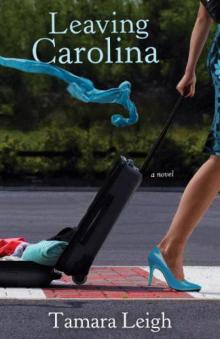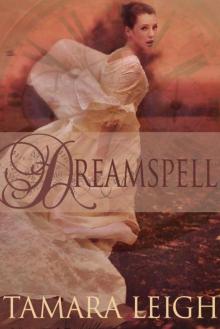- Home
- Tamara Leigh
HEARTLESS: A Medieval Romance (Age of Conquest Book 4) Page 6
HEARTLESS: A Medieval Romance (Age of Conquest Book 4) Read online
Page 6
However, when he exited after the torch, he saw there was one thing in which she indulged though the cost was paid with time. And felt the pound of his heart as he looked upon what one would never know was beneath the veil she snatched from him.
Her gleaming dark hair was not loose like that of a maiden nor bound tight to her scalp or simply braided, and when she swung away to fit the veil, he saw the back was as lovely as the front and sides. A multitude of beautifully worked braids draped and looped, and yet their tails hung low enough that when their crossings were undone, the crimped hair would venture past her thighs—might even skim her calves.
Were there any doubt she was noble, none now. Only a woman of high birth would be permitted to keep tresses which could not have been more than trimmed since she was a girl. Of course, that she held a position almost exclusive to experienced, aged women also bore witness to nobility which granted unearned privileges. Since the conquest, many landed Saxon families had hidden heiresses inside abbeys to keep them out of the hands of Normans who wanted more than the reward William promised for bringing England to its knees.
Was Mary Sarah an heiress? Since she would have been required to make her profession to attain her high office, thereby binding her to the Church for life, likely not. But she was beloved enough for her family to pay for a position of great esteem, power, and influence.
“Never would I have guessed what could be found beneath a simple veil,” he mused.
With jerks and tugs, she continued fixing it in place.
Maël did not understand why he wished to provoke a greater response as if he were still the young man of Normandy who teased many a maiden determined not to show interest in one who lacked lands, but he felt lightened as he had not in years.
Before he could think better of it, he said, “Is it possible I have been misinformed? That beneath the veils of all nuns and novices can be found hair fashioned to delight men who will never see nor touch it?”
Dropping her arms to her sides, she turned. Though the veil was off center, it covered her hair. “Most inappropriate, Sir Maël.”
“I speak only of hair, though it is a great tempter of men, and for that married women keep it covered outside the bedchamber, as do maidens in want of a proper chaperone.”
Her nostrils flared. “You test my godliness. Lest regret for words spoken finds me long repentant upon my knees and negligent of my charges, ’tis time you continue your journey to Wulfen Castle.”
Halfheartedly suppressing a smile, he said, “Now that I have verified the one I seek is not here, I shall.” He extended the torch and noted she avoided contact with his fingers.
After he had secured the iron door and returned the barrels to their places, Maël followed the woman whose stern bearing was at odds with glorious tresses he should not want to draw through his fingers.
As they exited the shed into sunlight dampened by the appearance of clouds that could see him and his men drenched during the journey ahead, silently he warned, Beware, Maël D’Argent who will never take a Saxon bride, you are at risk of bewitchment by one who will never take an earthly husband. Gird the Norman who came to conquer and the D’Argent of your sire who would berate you for wanting such.
As they came within sight of his destrier, the abbess intercepted a nun heading opposite and passed the torch to her.
“I thank you for granting me further audience, Abbess,” Maël said as he drew alongside.
“As it could not be helped, gratitude is not due me.”
“True.” Seeing her jaw shift, he wondered if she had pretty teeth and a smile fit for hair likely no man other than he had looked upon since her profession.
As such musings portended he was at greater risk of beguilement, he lengthened his stride and was soon astride.
“Good day to you, Abbess,” he said and took up his horse’s reins.
“Hold!” cried one whose voice he would recognize even were it absent its Norman-French accent.
Skirts raised higher than acceptable outside the abbey, Nicola ran from the infirmary, waved at two novices who feigned disinterest in their abbess and her male visitor, and halted alongside the destrier.
“I seek the abbess to relate something of interest, and still you are here, Maël.” She looked over her shoulder at that woman. “So kind of you to speak further with my cousin though your duties are many.”
Seeing wariness in the abbess’s eyes, Maël prompted, “What you seek to tell her must be beyond interesting to drag you away from the children.”
“It is, though I would have waited had I not put my wee one to sleep.”
“What so excites?”
Her smile was coy. Though less in charge of her life than she would be were she a man, her thoughts and words she could control. “Naught that concerns you, Cousin.” She patted his arm. “I am merely glad to see you one last time ere you depart. And I would remind you to deliver my gift to Lady Hawisa.”
Her creation of two tiny caps was not to be forgotten, though not for how beautifully worked they were. When he had complimented her for ensuring one or the other was appropriate regardless were the babe a boy or girl—the band of one embellished with a flower, the other a dagger—she had said she did not like the needle well enough to waste time better spent on other things. And one of those other things was that of which he should not approve.
Her training at arms had begun in Normandy when Guarin instructed his little sister in the flight of arrows and the wielding of daggers not only to calm the restlessness of a girl surrounded by males but afford her a measure of defense. However, it had not ended there. Nicola now received training from Guarin’s wife at Wulfen. No warrior was this cousin, but pity the man who thought to do ill to one believed helpless beyond running, screaming, and biting.
“I shall deliver the caps this day, Nicola.” Shifting his shoulders beneath his mantle, he moved his regard to the abbess. He meant only to nod in parting, but recall of her vanity made him consider again how far her loosed hair would fall, and he said, “I am glad to have furthered our acquaintance and to know though you don the habit and veil, you are yet of this world, Abbess.”
Seeing more than hearing her swallow, feeling more than seeing Nicola’s interest, he added, “Until we meet again.” Then he touched his cousin’s shoulder. “The Lord have a good care for you, Nicola.”
She smiled. “Godspeed, Maël.”
He turned his mount toward doors opened by nuns who appeared as if summoned.
Do I feel the abbess’s gaze? he wondered as he and his men spurred away in an attempt to outrun the rain. Or are her eyes upon me merely imagined? Regardless, he hoped they did not meet again.
“Heavenly Father, I am not certain I saw what I saw, but methinks it possible.”
As the nuns secured the doors, Mary Sarah turned to Nicola. “What is possible?”
“What I saw—or think I saw.”
Great the temptation to walk away, but greater the need to know what had so captured Nicola’s interest she had searched out Lillefarne’s abbess. “Of what do you speak?”
“Maël.”
Inwardly, Mary Sarah sighed. Outwardly, she raised her eyebrows.
“He saw you, Abbess.”
“Of course he did.”
“Not in that way. In the way of seeing a woman as once he saw women.”
As Mary Sarah tensed over what she suggested and the realization it had naught to do with whatever caused Nicola to depart the infirmary, the young lady continued, “I was not so young then that it escaped me—well, once I turned an age to know when a kiss wants to be given.”
Mary Sarah gasped. “You scandalize, Lady Nicola!”
“I am aware, but I must ask, did you see him the same?” She made a face, raised a hand. “Not that you can do anything about it since you are of the Church.”
Struggling against revealing how unsettled she was by the possibility Sir Maël had looked upon her as might a man who wishes to be intimate with a w
oman, telling herself had he done so it was only because of her unveiled hair, Mary Sarah said, “Such ponderings do a lady no credit, Nicola. Now tell, what was of such interest you came for me?”
The young woman blinked away dismay, then gasped, “Ah, that. Most interesting and, I believe, best spoken outside my cousin’s hearing. You know of the rebel leader, Vitalis, do you not?”
On one hand, gratitude was due the Lord that Nicola had been more discreet than expected. On the other hand, questioning was due the Lord for allowing the young lady to be privy to the whispering of youths who pondered the identity of the red-headed and bearded warrior who delivered them to Lillefarne.
The same as the boys, Nicola had questioned if their savior was the leader of the Rebels of the Pale who strove to protect his people from the invaders.
Mary Sarah had said she had spoken with the one who escorted the children here and, having looked upon Lady Hawisa’s former housecarle years past, was certain this one was not the same.
Sensing Nicola was not entirely convinced, she had lightly scolded her by pointing out red hair and formidable build was not a rarity among Saxon men. Not a lie, though few were as tall and broad as Vitalis.
Now, pausing on the stairs to her apartment, she raised a head lowered by weariness and worry, confirmed her veil was secure, and pressed her shoulders back.
Upon entering the outer room where she conducted the abbey’s business, she closed the door firmly, slid the bolt, and said, “Unseemly though ’tis, best you pass the night here.”
Wulfen Castle
Wulfenshire, England
As expected, Guarin would himself search for his youngest brother. Having departed the hall to begin provisioning warriors to ride north at dawn when, hopefully, they would do so beneath tear-spent skies, he had left Maël with the Lady of Wulfen who was displeased at learning the reason there were king’s men outside her walls and one inside.
“Thus, that rumor finds me returned to Wulfenshire,” Maël concluded.
Hawisa stared. Once their disdain had been mutual, the lady so disrespectful and defiant over Norman rule that the king’s messenger had liked her no better—even momentarily hated her for naming his sire a coward—but no longer. Much cause she was given to feel and act as she had and much redemption granted her in saving the life of the cousin feared lost at Hastings. True, she had bewitched Guarin, but her love for her Norman husband seemed genuine.
She pushed up out of the chair before the hearth and settled her hands atop a belly so great it raised her skirt enough to show her slippers. Were she yet six weeks from delivering the first of the Wulfrith-D’Argent line, a very large son or daughter she would place in her husband’s arms—did she survive its birthing.
“I see,” she said. “What I do not see is why your king concerns himself with a man no longer of threat to him.”
There was venom in her rejection of William as her liege, and for that Maël was glad Guarin had permitted only his cousin to enter here. No longer begrudging her what once he had, only one who was cast of stone able to ignore the abomination recently perpetrated against her people, he said, “I do not doubt even were Vitalis in yon solar you would feign ignorance, and I could not fault you.”
Disbelief narrowed her eyes.
“I am not here to ask you to betray him, Lady Hawisa. I am here to inform you my men and I must search your lands to do our duty to William, as well as give you my word we shall do so with the least amount of disturbance to your people.”
“Generous,” she said with less sarcasm than expected. Then with more generosity than thought possible, she added, “Though your men must make camp outside our walls in consideration of the boys and young men whose training is entrusted to us, I shall have a chamber prepared for you.”
He inclined his head. “One night, two at most. Now I will join Guarin to aid in preparing for his departure on the morrow.”
“I shall see you at supper, Sir Maël.”
He started to turn away, but the removal of her hands from her belly reminded him of a promise. He drew forth the pack slung over the shoulder of his rain-dampened mantle, tossed back its flap, and removed a bundle. “May I?”
She nodded for him to approach, and he set the gift in her hand. “Before I left Nicola at Lillefarne, she insisted I deliver this.”
The lady plucked at the ribbon binding it and folded back the cloth. As she examined the caps, her eyes moistened and mouth began to tremble. Was she remembering her first child slain during the great battle? That Maël’s sire was believed to have put through the boy, possibly in retaliation for the boy putting through him?
In that moment, Maël accepted words needed speaking, but before he could think how best to express regret over her loss, she returned her regard to him and smiled tremulously. “Our Nicola is gifted, as much with the sharp of a needle as the sharp of a blade—and forget not her tongue.”
Half-relieved her departed son had receded, half-regretful what must be done would have to be done later, he returned her smile, possibly the first genuine one afforded her.
“She is a D’Argent,” he said and dipped his head. “Until supper, my lady.”
Chapter Five
Lillefarne Abbey
Wulfenshire, England
Here one whose absence she had not missed, and great the temptation to refuse him admittance—not because their stores of wine were sufficient. Nay, for that other thing of which she did not wish to take delivery. And so averse was she, had she a choice between once more facing the chevalier who departed two days past and this man, she would choose Maël D’Argent—even absent her veil.
She pressed her shoulders back, then signaled for the other door to be opened to allow the merchant to bring his wagon inside, and only that. As ever, the mounted escort who ensured he was not set upon during his deliveries would await him outside the wall.
As she started for the shed in the back right corner where last she had been with the chevalier who hunted Vitalis, she heard, “Abbess!” and looked to the young woman on the infirmary steps.
Nicola jutted her chin at the merchant whose horse pulled the ladened wagon inside. “Shall I join you?”
After all that had transpired these past days—the arrival of starving children, Nicola’s untimely appearance, the encounter with Maël D’Argent, the man who remained in her apartment, and now evidence the Abbess of Lillefarne was not forgotten by the woman who sent her here—Mary Sarah was so tense it was difficult to remain composed.
Knowing she ought not be annoyed with Nicola for seeking to relieve her restlessness over spending nearly every waking hour with the children, she called, “I thank you, but the merchant and I have matters of pricing and delivery to discuss. As he has much to answer for, it is best done in privacy. But rest a while longer, else walk in the cloister.”
That last lightened Nicola’s disappointment. “I shall, Abbess.”
Mary Sarah resumed her course and reached the shed before the merchant who had to go the long way around, his wagon unable to negotiate the narrow spaces between buildings.
As she opened the door wide to allow him to roll in barrels of wine she did not need but which provided cover should a resident become overly curious about his visit, he arced wide as he drew his wagon near, turned, and brought it parallel to the shed. But rather than rein in as usual, he turned sharply alongside the door, causing the wagon’s backside to swing around and the barrels beneath taut canvas to scrape against one another.
Easier to unload, Mary Sarah guessed, and confirming none of the residents showed undue interest, stepped into the shed as the merchant jumped to the ground.
“Abbess.” He dipped his head.
“It has been a long time,” she said. “I began to think I would not see you again.”
“As did I, but then this from all the way across the sea.” He drew a rolled parchment from a pouch on his belt. “It seems you might yet be of use to her.”
Of use…
With a trembling hand, she accepted it. Much was required of her to administer Lillefarne, but more stressful it was with her grandmother heavy on her shoulder. Though she had begun to think herself abandoned, she did not overly resent it.
Except for when coastal raids on England were launched from Ireland by Gytha’s grandsons who had been born of Harold and the handfasted wife he set aside to wed a noblewoman deemed worthier of being his queen, Mary Sarah was likely the only Godwine left in their country. As this was not the life she wanted, she had hoped one of the missives sent her would end the ruse. But now she almost hoped this one, so long in coming, did not. Almost…
It was possible Gytha finally accepted those of her blood would never reclaim the throne, was it not? It was possible she wished to make good whatever she could of her remaining years and do so with her granddaughter at her side, was it not?
“Whilst you read, I shall unload the barrels,” the merchant said.
She nodded, then turned to the side to cast light come through the doorway onto the missive, broke the seal, and unrolled the parchment.
Though the handwriting appeared inked by trembling fingers, it was familiar enough to confirm who had moved the quill.
My dear Abbess, it began, this Saxon noblewoman, bereft of all sons and lands, has arrived safely in her kinsman’s country and been kindly received.
Mary Sarah looked to the bottom for the name taken for the writing of this missive—Lady Edelwine. Never the same, and ever details to be interpreted by what was known of the old woman and what was rumored.
Returning to the top, she resumed reading.
I know not if my niece remains within your walls, but if she is yet in your care, I would have you deliver glad tidings I have secured a good future for her. The noble family who has taken in this lady seeks a wife of godly character for a second son of good character.
Mary Sarah—or was it Mercia?—identified not as a granddaughter but a niece, caught her breath. If she interpreted this correctly, Gytha referred to Canute, the second son of King Sweyn of Denmark who had sent an army last autumn to aid the Saxon rebels in ousting William. Instead, the rebel and Danes’ victory over York had led to the harrying. But before Le Bâtard set that evil plan in motion, he had paid the Danes to withdraw their support from the resistance and permitted them to remain in England until spring when it would be safer to sail home.

 FEARLESS: Book Two: Age of Conquest
FEARLESS: Book Two: Age of Conquest BOUNDLESS: A Medieval Romance (AGE OF CONQUEST Book 6)
BOUNDLESS: A Medieval Romance (AGE OF CONQUEST Book 6) Lady Betrayed
Lady Betrayed Merciless
Merciless Nowhere, Carolina
Nowhere, Carolina Virgin Bride
Virgin Bride Blackheart
Blackheart Restless in Carolina
Restless in Carolina THE AWAKENING_A Medieval Romance
THE AWAKENING_A Medieval Romance Baron of Blackwood
Baron of Blackwood Leaving Carolina
Leaving Carolina HEARTLESS: A Medieval Romance (Age of Conquest Book 4)
HEARTLESS: A Medieval Romance (Age of Conquest Book 4) Baron of Godsmere
Baron of Godsmere Lady Of Eve
Lady Of Eve LAWLESS: A Medieval Romance (AGE OF CONQUEST Book 7)
LAWLESS: A Medieval Romance (AGE OF CONQUEST Book 7) Lady Of Fire AKA Pagan Bride
Lady Of Fire AKA Pagan Bride The Yielding (Age of Faith)
The Yielding (Age of Faith) The Redeeming: Book Three (Age of Faith)
The Redeeming: Book Three (Age of Faith) LADY UNDAUNTED: A Medieval Romance
LADY UNDAUNTED: A Medieval Romance THE RAVELING: A Medieval Romance (Age of Faith Book 8)
THE RAVELING: A Medieval Romance (Age of Faith Book 8) LADY EVER AFTER: A Medieval Time Travel Romance (Beyond Time Book 2)
LADY EVER AFTER: A Medieval Time Travel Romance (Beyond Time Book 2) Dreamspell
Dreamspell The Unveiling (Age of Faith)
The Unveiling (Age of Faith) THE RAVELING
THE RAVELING Splitting Harriet
Splitting Harriet Age of Faith 4 - The Kindling
Age of Faith 4 - The Kindling THE RAVELING_A Medieval Romance
THE RAVELING_A Medieval Romance Perfecting Kate
Perfecting Kate Misbegotten
Misbegotten THE VEXING: A Medieval Romance (AGE OF FAITH Book 6)
THE VEXING: A Medieval Romance (AGE OF FAITH Book 6) LadyOfConquest:SaxonBride
LadyOfConquest:SaxonBride